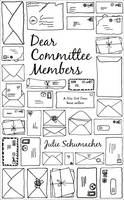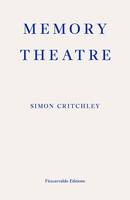A few notes on some of the books I’ve read recently:
Janice Galloway, The Trick Is To keep Breathing (1989)
I enjoyed reading a collection of Janice Galloway’s short stories a few years back, and so was pleased when my book group selected her first novel for this month (as luck would have it, I couldn’t then make the meeting – bah!). It’s the story of Joy Stone, who is sent into a spiral of depression by events that we only gradually piece together as we follow her through daily life and a stint in hospital. Galloway’s novel is written as a collage of documents, from diary entries to magazine snippets to marginal notes – a technique that mirrors the fragmentation of its protagonist. I think it’s a shame that this book seems not to have made as many waves in its day as (say) The Wasp Factory did, because Galloway deserves to read much more widely than she is.
Paul Ewen, Francis Plug: How To Be a Public Author (2014)
The latest book from Galley Beggar Press is ‘written’ by the aspiring author Francis Plug, who documents his meetings with winners of the Booker Prize. Paul Ewen gets the voice of his narrator just right: earnest, and trying just that little bit too hard; whether or not that becomes annoying is probably down to the individual reader. Although Francis Plug starts off as simply amusing, as the novel progresses we start to see the desperation that lies underneath the character’s facade. There’s something of Graham Underhill about Plug; and, like Nat Segnit’s book, there’s an underlying weight and melancholy that leads to a tragicomic ending.
 Julie Schumacher, Dear Committee Members (2014)
Julie Schumacher, Dear Committee Members (2014)
And here’s another novel about someone in the literary world which has a bitter twist beneath its comic surface. It’s the collected correspondence of Jason Filger, a professor of creative writing and literature, who writes copious letters of recommendation for his students (on paper, through the mail) and finds himself feeling increasingly out of step with the world around him. Filger’s letters reveal the absurdities of his world: students having to apply for ever more menial jobs; his department being squeezed out by those of more lucrative subjects; his own obsession with championing work of one particular student while others find that elusive success. Dear Committee Members takes a particularly sharp and bracing turn towards the end, which makes you see the book in a new light. I’ll certainly be keeping an eye out for more of Julie Schumacher’s work in the future.
Anneliese Mackintosh, Any Other Mouth (2014)
A collection of short stories (published by Freight Books) which, the author says, are 68% true and 32% fictional – though only she knows which is which. Anneliese Mackintosh takes us through various events in her alter ego Gretchen’s life – a precarious family life in childhood; discovery and calamity at university; grief, happiness and more in adulthood. There’s a wonderful range of style and tone in Mackintosh’s stories; it seems beside the point to single out particular pieces, when it’s the totality of Any Other Mouth which really impresses. The intensity that Mackintosh achieves across the whole collection is really quite something.
Slavoj Žižek and Srećko Horvat, What Does Europe Want? (2013)
I read this book (published by Istros Books, who specialise in works from South East Europe) following my call on Twitter for recommended essay collections. It’s one of those occasions where the subject is not a natural fit for me – I’ll be upfront in saying that I’m not into politics and don’t know that much about it – but I read What Does Europe Want? out of curiosity and will find some way to respond to it. Žižek and Horvat are philosophers from Slovenia and Croatia respectively; in these essays, they explore the present and possible future of Europe and the EU. All I can really say is that I appreciated the authors’ style, and found plenty to think about.
Simon Critchley, Memory Theatre (2014)
This is the second title from Fitzcarraldo Editions (following Zone), a short piece that blurs the line between autobiographical essay and fiction. Philosopher Simon Critchley describes how he was sent boxes of unpublished papers belonging to his old friend and teacher, the French philosopher Michel Haar, who had recently died. Amongst the various documents, Critchley found writings on the Renaissance memory theatre: a created space containing images meant to represent all knowledge. He also found an astrological chart which appeared to foretell his own death – which led him to an inevitable conclusion. Critchley’s book reflects on memory, permanence and obsession; and becomes ever more intriguing as the relative security of the essay form gives way to the uncertainty of fiction.

Recent Comments